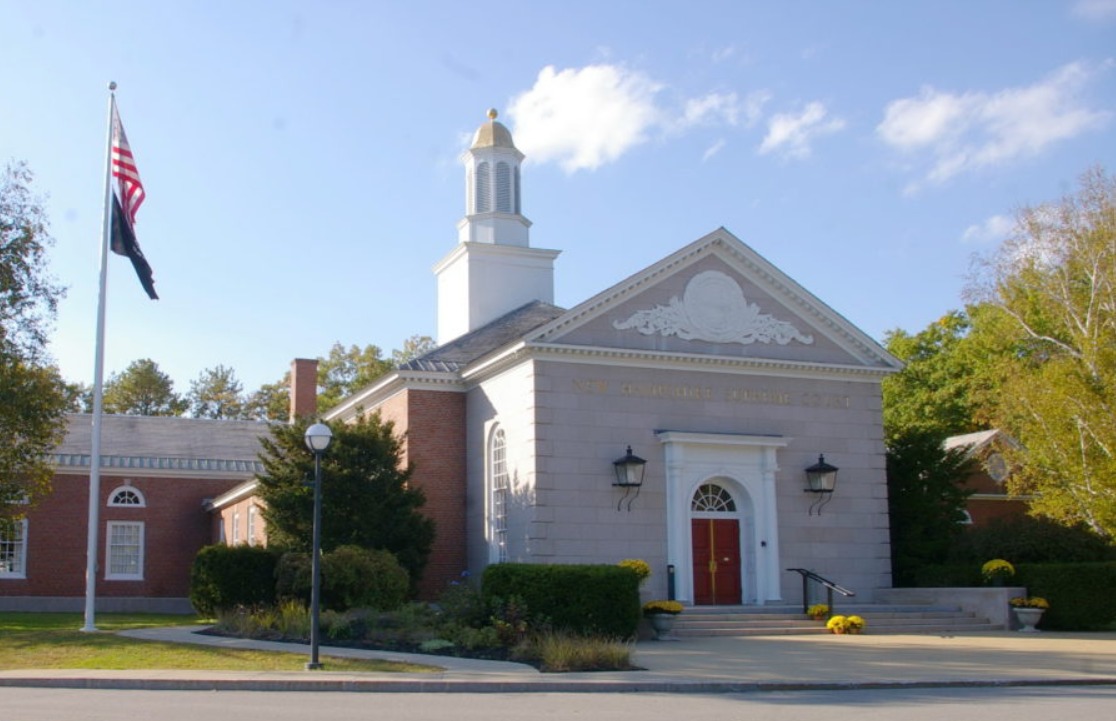
Story Produced by NH Bar News, a Member of
The N.H. Supreme Court issued its opinion Nov. 17 on the question of whether a remote quorum of the House of Representatives violates Part II, Article 20 of the state’s constitution. According to the Justices’ opinion it does not.
Joseph A. Hoell, Jr., of Milford, Secretary of The New Hampshire Firearms Coalition Inc., previously filed a memorandum in support of an affirmative answer to the question. He was joined on the memorandum by Andrew J. Manuse, Chairman ReOpen NH.
Attorney Penny S. Dean, arguing on behalf of Mr. Hoell, said the general court is trying to “get around the constitution.”
“The bottom line is that in this state we take representation very seriously,” Dean said during oral arguments on Oct 29. “The framers of this constitution were very clear and the language used throughout expected that our representatives would not make sausage in private but in full view of all the constituents that would be there.”
Dean referred to the process and the interaction that takes place between House members while voting in their chamber and argued that seeing this on a screen does not meet the state constitution’s definition of “present.”
“I think what we have here is that the general court is trying to get around the constitution,” Penny said. “People don’t want to just see the votes at the end if it’s a roll call vote. What they want to see is the process and the interaction between the individuals. And if this is allowed, as a practical matter, there’s going to be texting back and forth, there may be phone calls, many things that the public will not be able to see when you only have a two-inch square.”
Questioned by Justice Anna Barbara Hantz Marconi about whether a virtual presentation is similar to being in the gallery, Dean replied emphatically that it is not.
“Even with a 50-inch screen you’re only going to see a two-inch square,” she said. “The public has a right to see what goes on.”
The main question during oral arguments was what constitutes a quorum.
James Ciancy, arguing on behalf of the House of Representatives, said the question of what meets the requirement for a quorum focuses on the definition of what constitutes being “present” in the state’s constitution.
“That definition is not preclusive,” Ciancy said. “The legislature can adopt rules to meet constitutional requirements and in this case we argue that it can adopt rules to meet the quorum requirement under the constitution.”
Ciancy cited a U.S. Supreme Court case from 1892, U.S. v Ballin, which defined how congress determines a quorum “to do business.”
“At that time the Court said a legislative body can use any method that will be reasonably certain to ascertain the presence of a quorum. What we’re looking for clarification from this court is on the following: ‘can the House adopt a rule whereby it can reasonably ascertain a quorum through remote participation?’ And we believe that it can,” Ciancy said.
Asked by Justice James P. Bassett about issues that involve limiting access to the public raised by Attorney Dean, Ciancy said that reasonable access is required but that the legislature defines what that entails.
This would not mean that the doors to the gallery could be closed, Ciancy pointed out.
“The legislature, under Part Two Article Eight, couldn’t meet in secret, However, the method with which it provides public access is within the purview of the legislature.”
Ian R. A. Oxenham, arguing on behalf of Representative Lee Oxenham, said remote sessions do not disenfranchise voters or block public access to the legislative process.
“I would say we have the opposite situation,” Oxenham stated. “When we have in-person sessions during a pandemic then legislators who are infected or have symptoms have to stay away from those sessions and cannot vote. For example, my own client, Representative Oxenham, had COVID- 19 symptoms earlier this year and as a result was not allowed to part in any house sessions during March and not able to vote on 98 roll-call votes.”
“Not being able to have representatives being able to vote far outweighs people not being able to see facial expressions and hand gestures of other representatives,” he said.
The issue of what it means to be “present” in the state’s constitution was the issue that Attorney Paul Twoomey argued.
“This case boils down to one word in article twenty. It has nothing to do with public access in the gallery. The House didn’t ask questions about the gallery. The question before us is what does the word [present] mean in article twenty?,” Twoomey said. “I ask you to think about ‘present’ and what it means is to be able to hear, speak and vote, and that is the purpose of that clause.”
In her closing arguments attorney Dean returned to the issue of language in the state’s constitution.
“The framers fought over language. They were clear. And they clearly use the word present in terms of gathering in groups,” she said. “The house has the ability to make its own rules and as long as it’s reasonable they have that right. But they cannot trample the constitution. The fact is that our founding fathers used a language about meeting in groups and this should tell us what they intended.”
The Supreme Court’s opinion allows for quorums during virtual sessions, “As long as the requisite number of representatives is “present.”
In New Hampshire, a majority of the members of the House of Representatives are required for a quorum to do business.
 These articles are being shared by partners in The Granite State News Collaborative. For more information visit collaborativenh.org.
These articles are being shared by partners in The Granite State News Collaborative. For more information visit collaborativenh.org.







